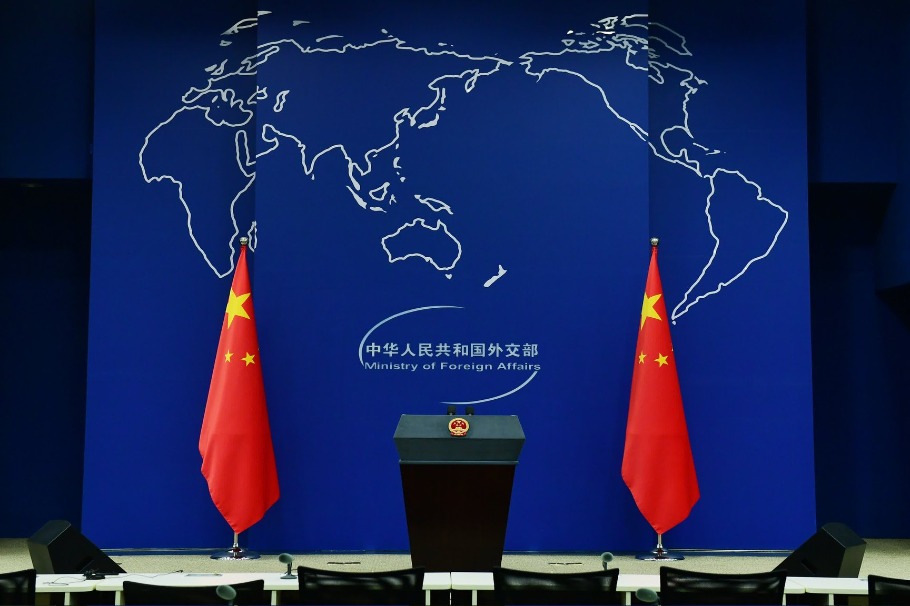Activists recount 'Red Scare' trauma, tell of new concerns
By LIA ZHU in San Francisco | chinadaily.com.cn | Updated: 2021-10-11 09:13
There was a fear of speaking to strangers, harassment from the FBI, public exposure and shaming by the local media.
William Dere, an activist in the San Francisco Bay Area, recalled how his family and many other Chinese Americans suffered from the "Red Scare" in the 1950s.
"The FBI would ring doorbells, talk to kids in the playground, tell lies to intimidate Chinese Americans to obtain information that would expose a person as a 'paper son'. The targeted individual can then be indicted on immigration violations," Dere said at a recent webinar hosted by the Chinese Historical Society of America.
The main way the government was able to attack the left and progressives at that time was by investigating the use of false papers by Chinese people to immigrate to the US, William Dere's sister Jean Dere, also an activist, wrote in an article published by the Journal of the Chinese Historical Society of America.
Their father, Kai Dere, was a member of the Chinese American Democratic Youth League, a progressive group in San Francisco. Because its members showed support for the establishment of the People's Republic of China in 1949, the group was among several organizations in the Chinese community targeted by the FBI during the Cold War and the McCarthy era, according to the article.
The government also created a "confession program" in 1956, pressuring the Chinese community into "confessing" about their immigration in exchange for immunity.
"An atmosphere of fear enveloped Chinatown. One person's confession inevitably incriminated many others," Jean Dere wrote in the article.
As a result of the program, her father was tried in court, eventually had his citizenship revoked and was threatened with deportation.
"There was a lot of fear and anxiety within our family. We were told not to speak to strangers, especially to white men, not to answer any questions when the FBI came to our door. There were arguments and estrangement between relatives," said William Dere. "There were relatives that we didn't see for years because of the resentment and feelings of betrayal as a result of the persecution by the US government."
His father was not deported because there were no diplomatic relations between the US and China at the time. "My dad became a stateless person with no passport, without the ability to leave and return to the United States. He was never able to even receive permanent resident status," said Dere.
Besides the emotional and psychological toll, his family also suffered from the economic impact due to legal costs to fight the charges and to retain US residency.
"They (the government) dumped their propaganda out and tried to change people's opinions. While they did this for the 'Red Scare' many times, we should learn that it's a tactic and strategy," said Dere. "I think it's really important that we learn from history and not to repeat mistakes."
"Unfortunately, the US government has not learned from history," said Lillian Sing, a founding member of numerous human rights and women rights organizations in San Francisco.
"It's just so sad that our government is repeating what it did to Japanese Americans during World War II, and what it did in the 1950s to the Chinese Americans and other activists of the McCarthy era," she said, referring to the "China Initiative", a program launched by the administration of Donald Trump to combat economic espionage.
After three years of extensive FBI investigation, none of the cases brought under the initiative have involved spying-related charges, said Sing.
A 2009 study found that the majority of people accused of espionage started shifting from individuals with Western names to those with Chinese names.
Andrew Chongseh Kim, a lawyer at the law firm Greenberg Traurig, and the Committee of 100 co-authored the report "Racial Disparities in Economic Espionage Act Prosecutions: A Window into the New Red Scare".
Their research analyzed data from 1996 to 2020 involving 276 individual defendants in 190 cases brought under the Economic Espionage Act.
"Most defendants with Western names received a summons ordering them to appear in court, while 78 percent of defendants with Chinese names were arrested with handcuffs," said Kim. "Being arrested is a really traumatic experience."
Xiaoxing Xi, a physics professor at Temple University in Philadelphia, was handcuffed and pulled out of his home in front of his wife and two young daughters; Sherry Chen, an employee of the National Oceanic and Atmospheric Administration in Ohio, was handcuffed and marched out of her office, past friends and co-workers, and taken to a federal detention center, said Kim.
For those with Chinese names, the US Department of Justice publishes press releases for 80 percent of the cases. By publishing the releases and naming an initiative after a specific country, the government "makes it easier for Americans to imagine that people who look Chinese are Chinese spies", said Kim.
























